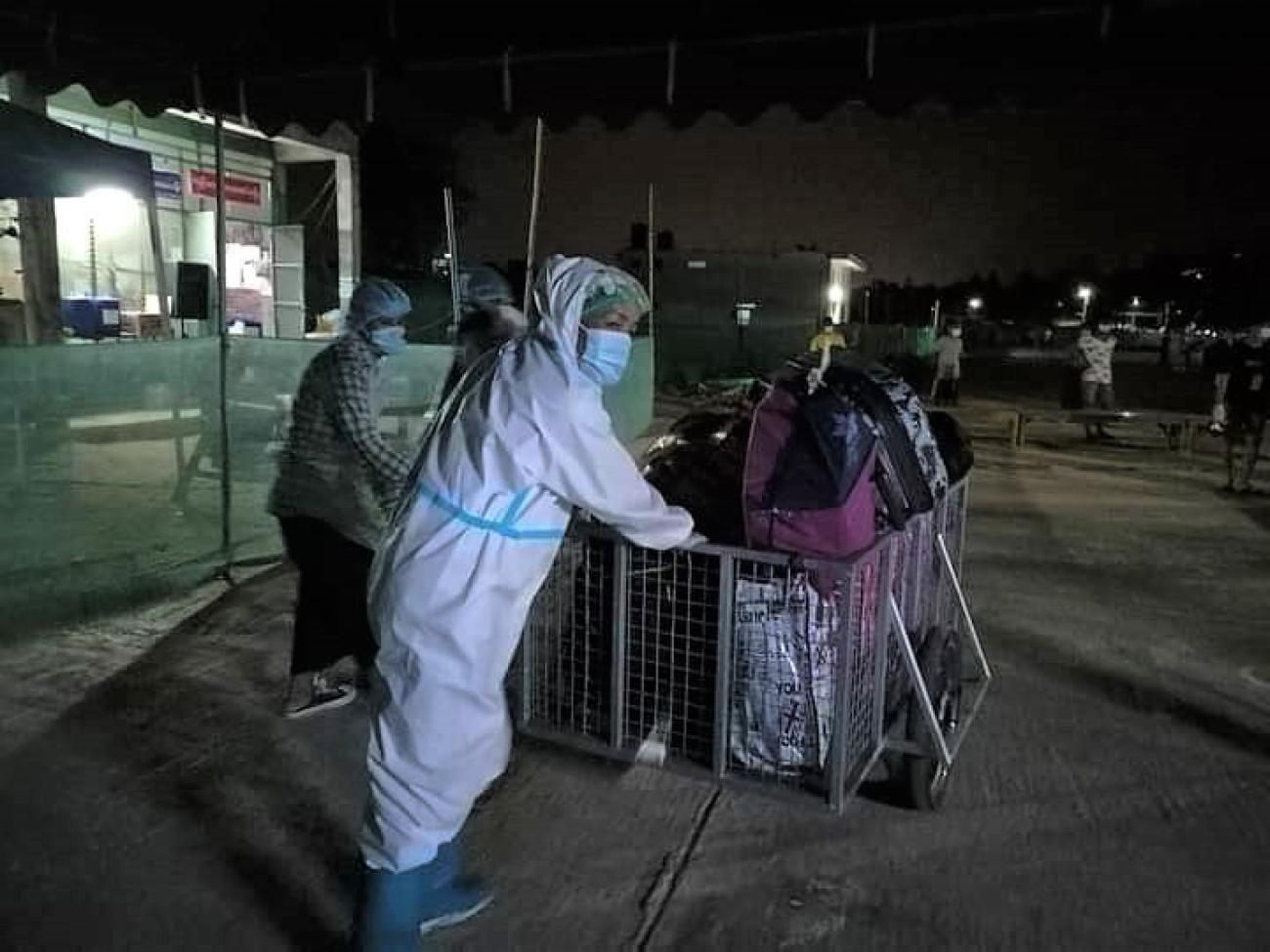No time for fear: Myanmar’s women frontline workers march to the beat of those in need

UN Women says coming out of this crisis will require a whole-of-society approach driven by compassion and solidarity.
The COVID-19 pandemic is more than a health crisis; it is an economic, humanitarian, security and a human rights crisis and it has set back some of the work achieved on gender equality over the last decades.
The UN Secretary-General has launched the UN Comprehensive Response to COVID-19 to save lives, protect societies, recover better.
In Myanmar, the United Nations came together as one to work together and in partnership with the Government and other NGOs to respond rapidly to the growing crisis on the border as hundreds of thousands of Myanmar migrants returned home in the face of COVID-19.
A response from the whole community at large was needed. UN Women and ts partners were able to encourage women to participate and lead in the crisis.
It’s been hard, but everyone needed help.
When Myanmar started to facilitate the return of women migrants back into the country, quarantine facilities were set up in Kayin’s Myawaddy town, close to the border of Thailand.
However, while it was challenging to find people who were ready to do the work in the frontline in the facilities, it was particularly difficult to find women volunteers.
Under the EU-funded Safe and Fair Programme, UN Women’s implementing partner Myanmar Women’s Organization Network (WON) and local partner on the ground, Migrant Monitoring Group (MMG) helped to support gender-sensitive management of quarantine facilities for migrant workers in Kayin State.
MMG stepped in with women volunteers ready to take on the work. Among them were Thiri Tun (57), Sandi Swe (45) and Than Nwe Tun (41), who have been working in the frontline as paid volunteers.
“Volunteering is not a hobby,” Sandi Swe emphasizes. While she finds that the experience has been enriching, it has also been a daily reminder of the pandemic. She has had to cast her worries aside to continue helping and facilitating the returning migrants.
Sandi Swe says no one wanted to work as a volunteer during the pandemic because people were scared. But she felt that wasn’t right and she didn’t want fear to get in the way: “Everyone, no matter their age, sex, gender and family background, needed help and that’s why I became a volunteer,” she added.
Than Nwe also chose to be a volunteer and knew signing up would mean setting everything aside and prioritizing the job with no pre-conditions.
“I haven’t seen my children since March. My sister is currently taking care of them and living somewhere else while I live in the quarantine facility,” she said.
While this has not been easy, working as a volunteer has been beneficial for her and is helping improve her work skills.
“I received quite good recognition from the authorities for the quarantine facility where I worked and this has been a very empowering experience.”
For Thiri Tun, providing emotional support for the returning migrants was also important, even if it just meant showing up.
“We also had no idea who was infected or not, but it didn’t matter. They needed to feel welcomed, and they needed our help and assistance.”
The work has been demanding and for Than Nwe and Thiri Tun.
Thiri Tun works and lives full-time in the office. Than Nwe has been living in the quarantine facility. Sandi Swe is able to live with her daughter, who is also a volunteer: they leave together in the morning and meet later in the night, sometimes in the office and sometimes at home.
The women have taken on the job as a learning opportunity. They started with no prior experience and are currently leading the quarantine facility and being recognized by the government for their management skills.
This has given them a surge of confidence that has helped Sandi Swe, Thiri Tun and Than Nwe and other women like them to become accomplished first responders, and has empowered them.
Safe and Fair: realizing women migrant workers’ rights and opportunity in the Association of Southeast Asian Nations (ASEAN) region is part of the EU – UN Spotlight Initiative to eliminate violence against women and girls. The programme is implemented by UN Women and ILO, in collaboration with UNODC.
If you liked this story you might also like: https://myanmar.un.org/en/87439-protecting-baby-feeding-family
For more information about UN Women’s programs in Myanmar: https://asiapacific.unwomen.org/en/countries/myanmar




